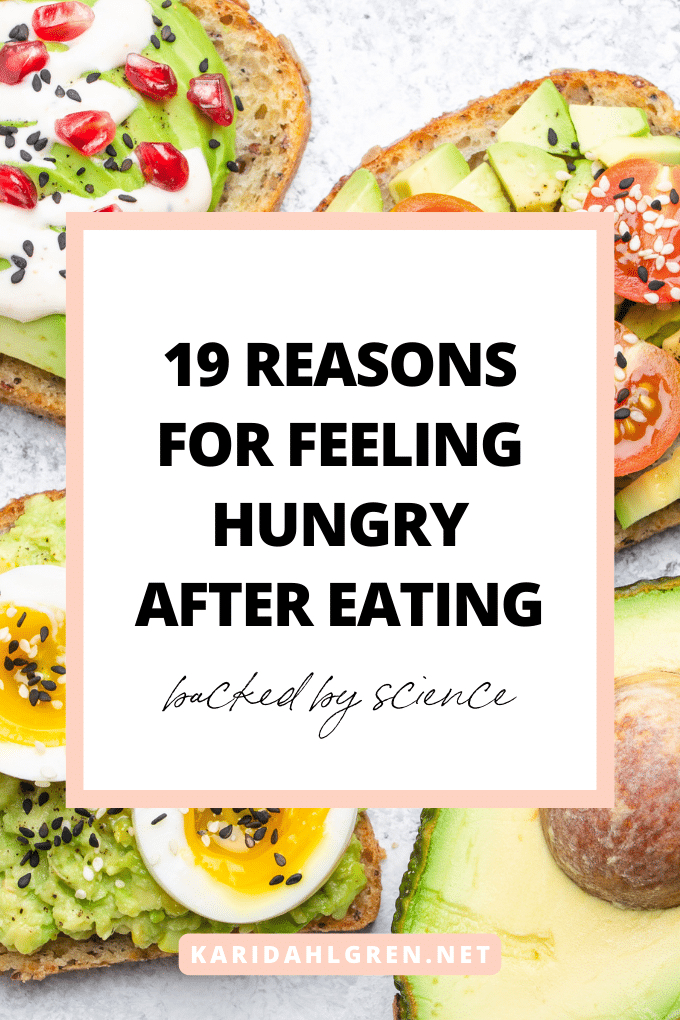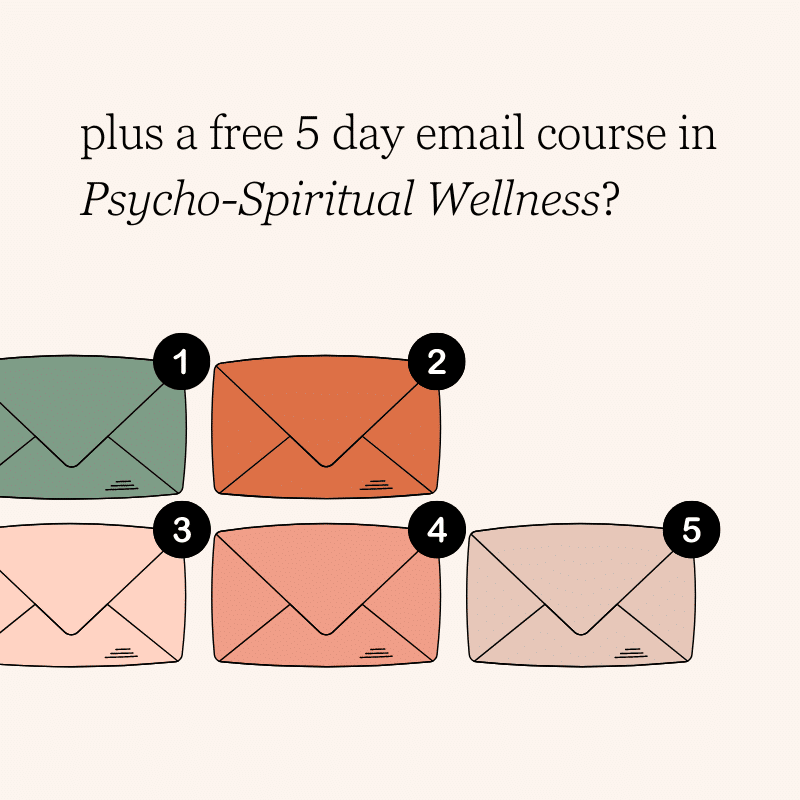
Have you ever finished a meal only to find yourself rummaging through the pantry shortly after, puzzled by a lingering sense of hunger? You’re not alone. Many of us experience this perplexing sensation, leaving us wondering, “Why do I feel hungry after eating?”
You’re about to discover the multifaceted reasons behind this common conundrum, exploring the biological factors before the more nuanced psychological factors. From the balance of nutrients on your plate to the impact of stress and emotions on your appetite, we’ll uncover the intricate interplay between body and mind that governs feelings of hunger even after eating.
How Hunger and Satiety Work
Hunger is your body’s natural way of signaling that it needs more fuel, a sensation driven by the stomach, brain, and hormones like ghrelin and leptin. When your stomach is empty, it triggers the release of ghrelin, the “hunger hormone,” which sends a signal to the brain to initiate the feeling of hunger.
Conversely, satiety is the feeling of fullness and satisfaction that comes after eating. It’s regulated by the release of hormones like leptin, the “fullness hormone,” which tell the brain that the body has received enough nutrients.
To answer the question, “Why do I feel hungry after eating?” it’s important to understand how the body is wired to respond to hunger and also recognize the psychological aspects of hunger as well. If you’re still hungry after eating, factors such as stress, boredom, and emotional eating can play a role.
Biological Reasons for Feeling Hungry After Eating
Once we dig through the biological triggers for feeling hungry after eating, we can dive deep into eating psychology. Biology is the bedrock of existence, and by grasping the physiological mechanisms behind hunger and satiety, we can better comprehend the complex question, “Why do I feel hungry after eating?”
Nutrient-Related Reasons: The Impact of Diet Composition on Hunger
By understanding how different nutrients impact hunger and fullness, you can tailor your meals to include more balance. Here are some nutrient-related reasons for feeling hungry after eating:
- Low Nutrient Density: Both micronutrients (vitamins and minerals) and macronutrients (carbohydrates, fats, proteins) are necessary for feeling satisfied after eating.[1] If you’re still hungry after eating, it might be worth examining the balance of nutrients in your meals to ensure you’re getting a healthy mix.
- Low Protein: Consuming a sufficient amount of protein at mealtime enhances satiety and promotes feelings of fullness.[2] After you finish a meal, if you’re left wondering, “Why do I feel hungry after eating?” check to see if you’re consuming enough protein to meet your body’s needs.
- Refined Carbohydrates: Foods high in refined carbs (e.g. instant ramen, white bread) can lead to a rapid spike and fall in blood sugar levels, which can cause feelings of hunger shortly after eating.[3]
Tips to Reduce Post-Meal Hunger: To combat hunger after eating, focus on incorporating a balanced mix of nutrients in your meals, particularly increasing protein and reducing refined carbohydrates — or at the very least pairing refined carbs with other macronutrients.
Volume-Related Triggers: How Meal Size Influences Hunger
If you’re intrigued by the physical mechanics of fullness and satiety, you’ll enjoy exploring these volume-related reasons for feeling hungry after eating:
- Not Enough Food: If you’re not eating enough to meet your energy needs, you’ll feel hungry after eating. This is a straightforward but often overlooked reason for asking, “Why am I still hungry after eating?” especially for dieters.
- Skipping Meals: Missing meals can lead to excessive hunger later on, as your body seeks to make up for the missed energy.[4] If you feel like you’re eating plenty of food at mealtime, don’t jump to the conclusion that something is wrong if you’re still hungry. Consider your overall caloric intake over the entire day instead of just one meal.
- Dehydration: It’s a popular belief that thirst can be confused with hunger, but strong clinical evidence has debunked this.[5], [6], [7] However, one study suggests that while hunger and thirst are distinct sensations, thirst may have a stronger motivational effect than hunger.[8] If you’re still hungry after eating, it’s worth drinking some water but it’s unlikely to solve the problem.
- Eating Too Much Too Often: Habitual and consistent overeating can “stretch” the stomach and cause reduced levels of leptin, even if you’re eating the same number of calories.[9] If you eat a meal that normally makes you feel full but still wonder, “Why do I still feel hungry after eating?” consider the typical volume of past meals and how this may affect your body.
Stretching the stomach can be particularly problematic for individuals who try to “fill up” on high-volume, low-calorie foods to lose weight. As the body adapts to high-volume, it decreases feelings of fullness over time, which can lead to increased hunger and overeating.
Tips to Reduce Post-Meal Hunger: To keep hunger at bay after eating, aim for balanced, satisfying meals, and be cautious of overeating or excessively filling up on low-calorie foods, as this can disrupt your body’s natural fullness cues.
Medical-Related Reasons for Post-Meal Hunger
If you experience persistent hunger despite an adequate diet, it’s important to understand the medical-related reasons for feeling hungry after eating.
- Leptin Resistance: Leptin resistance occurs when the body doesn’t respond properly to leptin signals, leading to increased hunger and overeating. This condition has been studied extensively in the context of obesity.[10]
- Digestive Issues: Conditions like gastroparesis or irritable bowel syndrome (IBS) can affect how food is digested, leading to feelings of hunger soon after eating. For example, IBS has been linked with low levels of leptin, resulting in decreased fullness and increased hunger.[11]
- Other Medical Conditions: Conditions like thyroid disfunction, type 2 diabetes, insulin resistance, polycystic ovary syndrome (PCOS), and certain genetic disorders can increase hunger. It’s important to consult a healthcare professional if you’re concerned about excessive hunger or if persistent hunger is accompanied by other symptoms.
- Medication Side Effects: Some medications can increase appetite as a side effect. If you suspect your medication is causing increased hunger, consult your healthcare provider.
Tips to Reduce Post-Meal Hunger: If you’re still hungry after eating despite a healthy, balanced diet, consider exploring potential medical causes with a healthcare professional for targeted solutions.
Why Do I Feel Hungry After Eating? Psychological Reasons
Even with a nutritionally balanced diet, factors such as stress, emotions, and habits can significantly impact eating patterns and your overall relationship with food. Eating psychology explores how thoughts, feelings, and beliefs influence food choices and eating behaviors, providing insights that can lead to more mindful and intentional behavior.
Behavior-Related Triggers
Before we dive into the deeper, more complex issues of emotional eating, let’s explore some behavior- and habit-related psychological triggers for feeling hungry after eating.
- Eating Too Quickly: For individuals that struggle with overeating, decreasing eating speed is associated with decreased food intake.[12] If you struggle with the question, “Why do I feel hungry after eating?” try to pay attention to your eating speed to see if it’s a factor.
- Lack of Sleep: Inadequate sleep can affect appetite-regulating hormones and reduce leptin while increasing ghrelin.[13] This can ramp up appetite and lead to feelings of hunger even after eating a normal-sized meal.
- Stress: Stress hormones like cortisol can stimulate cravings for high-calorie, comfort foods.[14] If you find yourself feeling hungry after eating and you’re craving something comforting, consider exploring stress-reduction techniques to see if it makes any impact on hunger levels.
- Strenuous Exercise: Intense physical activity can increase energy needs, leading to increased hunger. It’s important to refuel appropriately after exercise to prevent excessive hunger.
- High Metabolism: Individuals with a high metabolism burn calories faster, which can lead to increased hunger.[15] If you exercise intensely and want to ensure that you’re meeting your caloric needs, consider getting your metabolic rate tested to determine your specific energy needs.
Tips to Reduce Post-Meal Hunger: To manage hunger after eating, consider slowing down your eating pace and managing any excessive stress. Also, stay mindful of any activities that can ramp up hunger and metabolism and refuel appropriately.
Now that you know some of the more straightforward psychological reasons behind the question, “Why do I feel hungry after eating?” let’s dive into more nuanced aspects of eating and satiety.
Emotional Eating
Emotional eating is more common in people with a low tolerance for distress.[16] When faced with emotions like sadness, stress, or boredom, some people may use food as a buffer, which can lead to overeating.[17]
Distinguishing between emotional and physical hunger is key. Physical hunger grows slowly and can be satisfied with any food, while emotional hunger is sudden and craves specific comfort foods. Emotional hunger often results in mindless eating and lingering feelings of guilt after eating, unlike the satisfaction that comes from addressing physical hunger.
Tips for Emotional Hunger: Developing emotional regulation skills is key to navigating physical and emotional hunger. Some helpful techniques include mindfulness, stress management, or my Stop, Drop, & Feel technique, which encourages holding space for uncomfortable emotions. It’s similar to urge surfing, where you observe and acknowledge your cravings, which encourages them to pass like waves in the ocean.
By enhancing your ability to manage emotions and cope without food, you can reduce the likelihood of using food as a buffer. If emotional hunger was once a trigger for continuing to feel hungry after eating, these tips can help reduce that pattern.
Lack of Satisfaction
The next time you ask yourself, “Why am I still hungry after eating?” consider the difference between hunger and dissatisfaction. Some people feel full but not satisfied after eating, and it can lead to a sense of hunger — for satisfaction, not food.
This confusion is particularly common among dieters, who may restrict themselves to bland or unfulfilling foods in an effort to lose weight. The lack of satisfaction from “diet food” can leave behind a sense of hunger even after eating.
Tips for Satisfaction-Hunger: Intuitive eating is an approach that can help address this issue. It encourages you to listen to your body’s hunger and fullness cues, eat foods that are genuinely satisfying, and reject the diet mentality. This approach can help dieters break free from the cycle of restriction and dissatisfaction, ultimately leading to a healthier relationship with food.[18]
Distracted Eating
Distracted eating can significantly impact your perception of hunger and fullness. A famous experiment that highlights this is the “bottomless bowls” clinical trial, where participants unknowingly ate soup from bowls that were continuously refilled. Despite consuming more soup, they didn’t report feeling any more full, illustrating how distractions can disconnect you from your body’s satiety signals.[19]
Tips for Eating Without Distraction: For individuals with low tolerance for distress, the challenge of eating without distraction might seem daunting. The need for constant stimulation or preoccupation can make it hard to focus solely on the act of eating. This is perfectly okay, as the journey to mindful eating begins with emotional skill-building.
By enhancing emotional awareness, increasing emotional tolerance, and improving emotional regulation, you can gradually improve your willingness to eat without distraction. In turn, this can help your body register and regulate fullness so that you don’t keep feeling hungry after eating.
How to Handle Post-Meal Hunger
From the balance of nutrients in your meals to the impact of stress and emotions on your appetite, it’s clear that hunger is not merely a physical signal but also a reflection of your overall well-being.
By understanding the multifaceted reasons behind feeling hungry after eating, you can take proactive steps to address it. Whether it’s incorporating more protein into your meals, managing stress, or addressing emotional eating, there are actionable strategies you can adopt to feel more satisfied after meals.
If you’re struggling with persistent hunger or eating concerns, don’t hesitate to seek professional guidance. Ultimately, nurturing a balanced relationship with food and listening to your body’s cues can lead to a more fulfilling and nourishing eating experience.


![best seller [cover of Why We Do the Things We Do]](https://karidahlgren-net.b-cdn.net/wp-content/uploads/2023/09/why-we-do-the-things-we-do-1.png)

It was fully instructive. Earnest heartfelt Thanks to the author!
Thanks for dropping me a note, Hans!